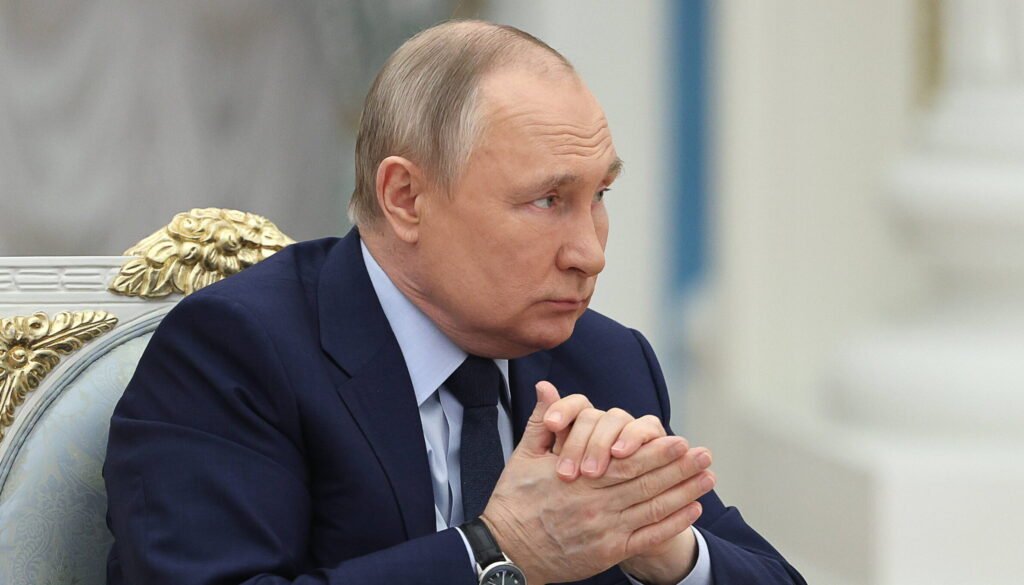
This originally appeared on TheAfricaReport.com
The fate of Ukraine still hangs in the balance. A mix of more weapons from NATO powers, noteworthy Ukrainian victories, and increased western diplomacy strengthen hopes for a negotiated settlement, yet the bombardment of missiles and the massive humanitarian crisis suggest a conflict that will further intensify before it cools down.
Such an elongated and heightened conflict creates crises outside Ukraine and Russia. North Africa is a perfect microcosm of how this conflict has created both political and economic dislocation beyond the borders of Europe.
The conflict is worsening a food crisis in the region, as Ukraine and Russia are leading exporters of agricultural products to North Africa, while also forcing countries to do a geopolitical dance to avoid picking a side, especially when the countries have military and diplomatic ties to either Russia or the US or sometimes both countries.
The conflict also presents opportunities for exporters who can fill gaps in the global supply chain, in particular, energy…but then again, those gaps are the result of both economic and political challenges with the political challenges never being so simple to solve.
Algeria: Who needs more gas?
Europe’s scramble to wean itself off Russian energy will benefit Algeria with its large gas reserves. Given its proximity to Europe, Algerian leaders and Sonatrach officials were on the shortlist for calls in the initial days of the conflict in Ukraine.
The US also took the initiative to meet with Eni and Total among other companies operating in Algeria in the initial weeks. One result of focused European and American efforts was Italian Prime Minister Mario Draghi announcing last week a deal with Algeria to increase the flow of gas to Italy via the Mediterranean pipeline.
The deal could be the beginning of Qatari-style leadership from Algerian President Abdelmadjid Tebboune whose administration maintains close diplomatic links and military alignment with Russia yet is willing to increase the flow of Algerian gas to Europe.
Such commercial pragmatism could pay significant long-term economic and political benefits. Furthermore, with European officials floating the idea of a phased import ban on Russian energy sources, Algeria would best be advised to promote itself as the neutral, commercially savvy partner to energy-starved countries in Europe.
Such positioning would be a big geopolitical win for Algerian leadership. In some ironic way, this positioning is dependent on its former coloniser France as European officials remain hesitant to proceed with the import ban and actually vote on the measure until they understand who wins the second round of elections in France.
Egypt: Food inflation, loss tourism, and political dancing
As the story goes, no meal in Egypt feels proper without some bread. Subsidised bakers across the country offer 20 loaves of Egyptian flatbread aish baladi for one Egyptian pound, which is roughly $0.6.
The bread costs about $0.50 to $0.60 to make; consequently, the state bill for the tasty pita is not small at about $3.0bn annually. And as the other story goes, no sane Egyptian politician has a chance to maintain power if he makes that subsidy the target of his financial frustrations.
President Anwar Sadat once dared to scrap the bread subsidy in 1977 and reversed course after the army had to subdue the riots in the streets. Thus the ultimate question is how much subsidising the price of wheat (and effectively bread) will cost the government.
Egypt also cannot escape the comprehensive partnership agreement signed in 2018 with Russia to bolster trade and other ties between the countries.
It was this treaty (and related discussions) that led to the resumption of direct flights between Russia and Egypt, which had been suspended after a bomb planted by the Islamist State took down a Russian plane over Sinai in October 2015 and killed 224 people onboard.
Today, Egyptian tourism, which accounts for 12% of the GDP, depends significantly on the influx of both Russian and Ukrainian tourists that will not be coming again soon.
The ultimate result is a huge economic loss as the war continues. As for the political situation, there is no better example of a country stuck in the middle as a major ally of the West, in particular the US, and equally a major beneficiary of links to Russia, especially militarily where Russia provides an estimated 30-40% of Egyptian weapons.
Let’s see how Egyptian leader Abdel Fattah al-Sisi plays his hand in this situation. Ideally, a winning hand pays some financial dividends.
Libya: Oil-rich, but commercially engaged with Europe?
Europe is not only searching for gas; it could use a partner to help replace Russian oil. But Libya with Africa’s largest oil reserves (plus a sizeable amount of gas) is mired in an ongoing internal conflict, which is plagued by a nasty mix of Russian mercenaries and Russian cash (as well as cash from the UAE and Saudi Arabia) backing General Khalifa Haftar and US forces and money supporting the UN-backed government and its efforts to organise an election.
Hence, it came as no surprise that Libya’s oil minister quickly announced last month that it did not have “sufficient reserves to make a difference” regarding global supply.
It was a strategic exit from a conservation for a country marred by its own political uncertainty. That said, if Libya cannot capture the oil opportunity, it surely cannot avoid the pain caused by the conflict in Ukraine. Food prices in Libya are rising as the country imports about 75% of its wheat from Russia and Ukraine.
It cannot trade oil for wheat if it truly lacks the reserves to do so and additionally is not able to capture the windfall from oil prices. In the most optimal situation, oil windfalls would pay for food inflation (creating a near net-neutral position if possible. Sadly, the situation in Libya has not been optimal for a while.
Morocco: Stay quiet and stay neutral as long as possible
Morocco is the odd child in this group, not offering energy resources and not exactly doing the political dance. Rather, Morocco permits Russian airlines, Azur Air and Nordwind, to stopover in Morocco with sanctions forcing such airlines to choose different routes to complete certain travel and avoid planes being repossessed.
Morocco assumes a neutral position in this conflict. Moroccan leaders also want to avoid any conflict with Russia who they continue to build better relations with as well as see as the prime ally of their quasi nemesis Algeria.
Yet neutrality can only go so far as Morocco relies heavily on grain, minerals, and energy imports from Russia and is increasingly facing constraints on the national budget as prices for their key imports continue to rise.
Moroccan state-owned OCP, which is the largest exporter of crude phosphate, possesses a substantially healthy and growing fertilizer business and could capture additional market share with exports down for Ukraine and Russia yet skyrocketing gas and ammonia input prices likely counteracts any effort to boost production. Therefore, expect Morocco to stay put and avoid stirring the pot.
Tunisia: Oil imports and food inflation
Tunisian President Kais Saied is sending a delegation to meet with the IMF to, as political analysts note, cover the holes created by Covid-19 and further exacerbated by rising food and oil prices.
Tunisia, as both a big grain and energy importer, is facing economic challenges in the midst of political turbulence. President Saied has dissolved the parliament and already proposed economic reforms (viewed as a precursor to its IMF discussion) that Tunisia’s labor union UGTT is warning will lead to future strikes and protests.
Tunisians have stocked up on food in anticipation of the end of the Ramadan period when food consumption increases, thus supply in the country is strained.
Unsurprisingly, as wheat supplies become limited (with Tunisia dependent on Russia and Ukraine for approximately 60% of its supply) along with depleted supplies of semolina (prime ingredient in couscous), President Saied could be facing a situation where labour protests are coupled with empty supermarket shelves.
Rising energy costs only further fuel (no pun intended) the frustration amongst Tunisians. Tunisians should also prepare for a decline in tourism during the summer with a drop in tourists expected from Russia and Ukraine. This situation could ultimately become a toxic political and economic cocktail for President Saied. For now, Tunisians are not exactly pointing the finger at President Saied but blaming Covid-19, global supplies, war, etc…which may be the only thing preventing major social unrest.
